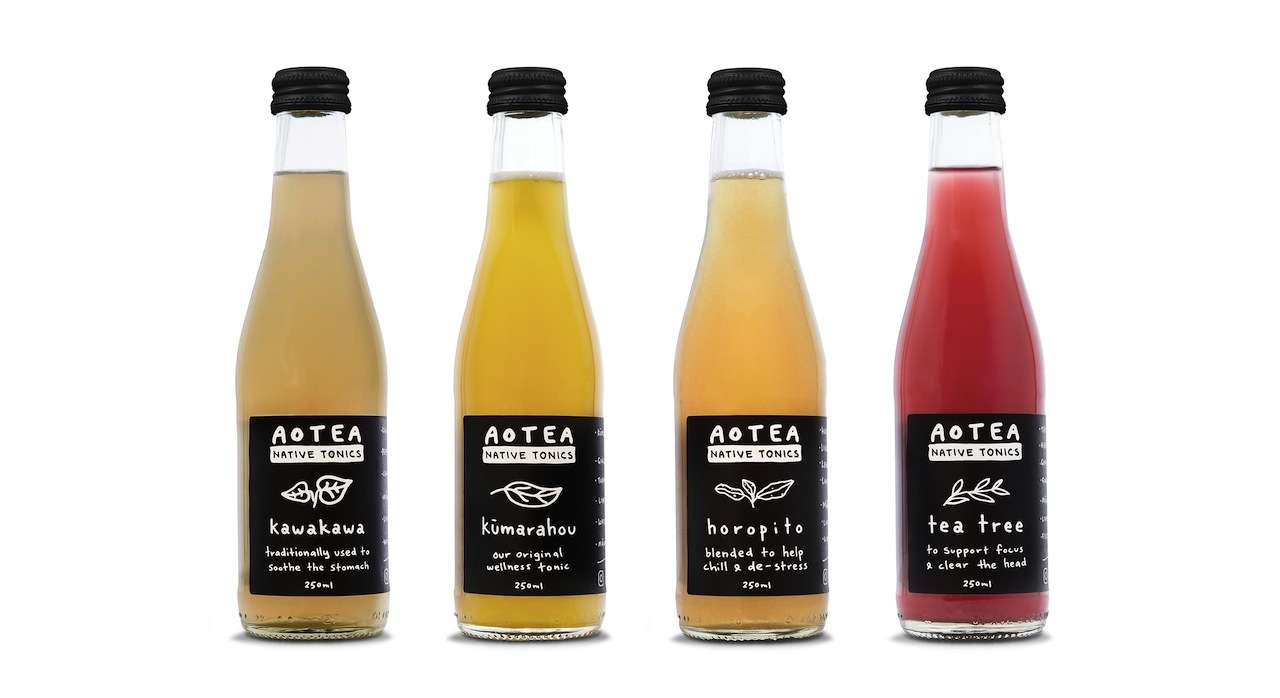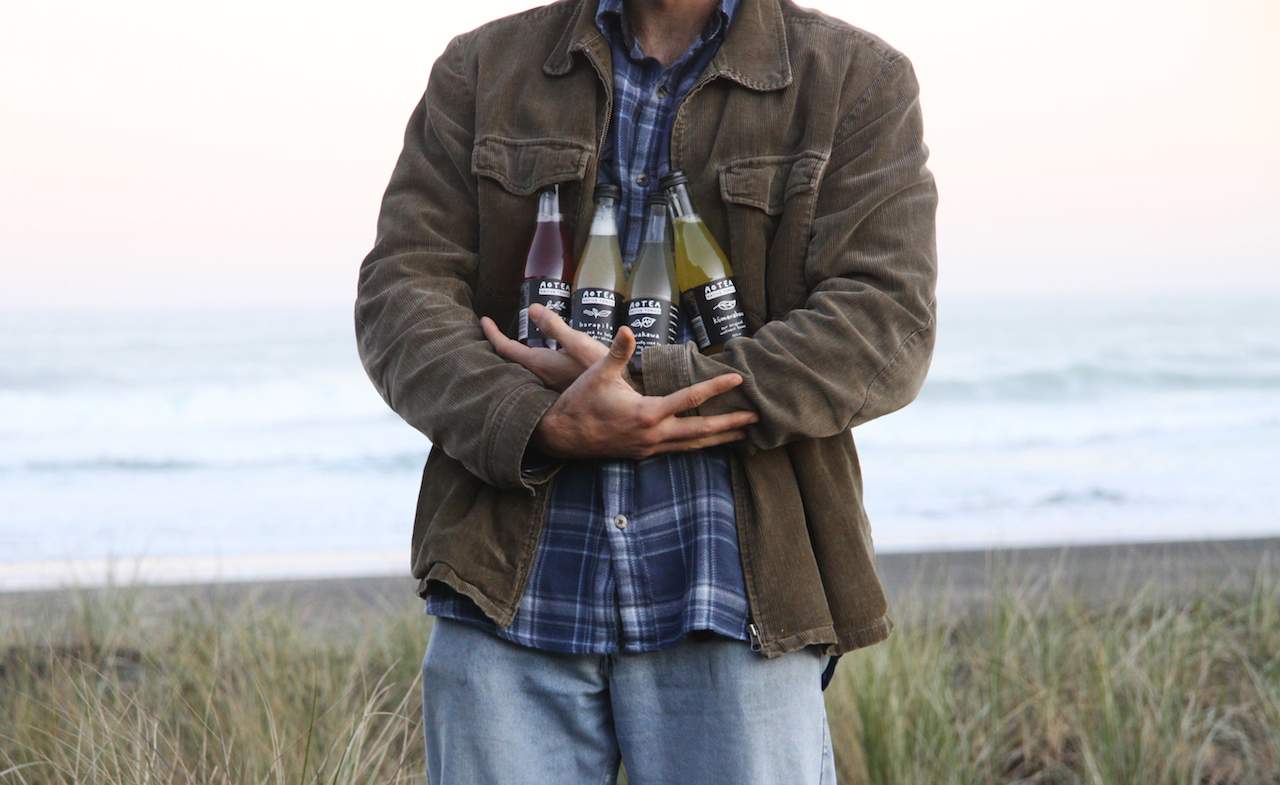Aotea Wellness Tonics Are Inspired By Traditional Maori Herbal Remedies
In time for the cold snap we're giving away 5 x four packs.
As a way to create a sustainable business for his family, athlete-come-entrepreneur Tama Toki launched Ahi Ka Tonics - a fitting label for a wellness beverage, translating from te reo Maori to "keep the fires burning". After a successful first year the start-up has decided to make a shift to Aotea Tonics to better communicate the brand's origin and source of the core native ingredients, Great Barrier Island. In line with the name change, the tonics now include more recognisable ingredients such as peppermint, liquorice root and lavender, as well as native ingredients kawakawa, horopito, kūmerahou and tea tree. We caught up with Tama to discover more about the brand and the health properties of each tonic.
![]()
Hi Tama. Tell us about Aotea Tonics.
I grew up on Great Barrier Island, the Māori name for which is Aotea. My Kuia, grandmother, would be sure to always have a pot of kūmarahou or kawakawa tonic simmering on the stove during the winter months. These tonics became a regular part of the whānau diet and became the natural remedies used to cure winter ailments. Our tonic recipes are based on these traditional Māori recipes.
Can you run us through the process from ingredient picking to tonic making?
The team on the island is essentially family. In the early days the old man (who lives on the island) would pick the kawakawa or kūmarahou, pull a couple kilos of honey from our hives and place them all on The Barrier plane. I'd make the pick up and then make a giant tea bag and brew in a big pot. We keep the process real, and don't use any concentrates, syrups etc. Just the real herbs/leaves. A bit of honey and freshly squeezed lime juice. This process remains, only we're doing it on a larger scale.
How long did it take/how did you go about refining the recipes?
It really was a matter of trial and error. It seems to be an ongoing process - particularly in the early days down at the farmers markets. Every weekend we'd change ratios and ingredients in line with feedback from the market goers. And we still like the idea of mixing things up if it calls for it.
How do you get a balance of nutrition and taste?
The great thing is that we use no processed ingredients, literally just the herbs, about one teaspoon of mānuka honey per tonic, a squeeze of citrus and water. So we're lucky, in that using such raw ingredients means the tonics will always have some nutritional offering - but the taste, again, comes down to trial and error.

We love the idea of using native ingredients for health purposes. Can you please outline the health benefits of each Aotea tonic?
Our tonics are inspired by traditional Māori herbal remedies. We pair the native herb with western/contemporary ingredients that complements the function of that native herb.
- Kawakawa was traditionally used to soothe digestion. In line with this we brew with peppermint and chamomile which also offer a similar function.
- Kūmarahou was traditionally used to aid the respiratory system - clearing mucus from the lungs. We brew with classic ingredients well known to fight winter ills, including fresh turmeric and ginger root.
- Tea Tree (also known as mānuka), is an anti-bacterial and is similar to eucalyptus in that it was used to clear the head and sinuses . We brew our tea tree leaves with herbs recognised to aid clarity and focus.
- Horopito, again is anti-microbrial, and so is brewed with ingredients and herbs that are understood to alleviate stress and help you chill.
What's next for Aotea?
We've just made some really exciting changes for the brand, including new recipes and packaging. So at this stage we're focusing on how these are received by everyone, and we'd be stoked to keep adding to what we've started on the island.





